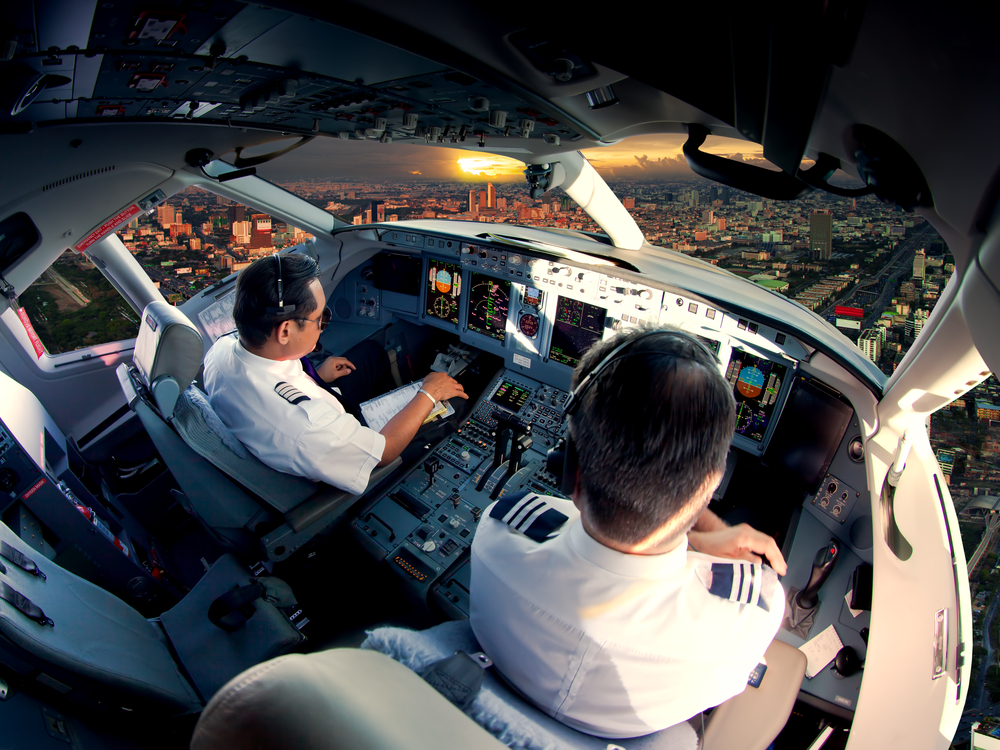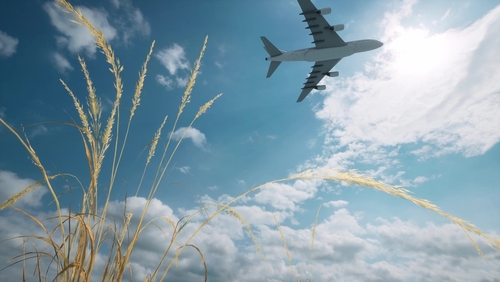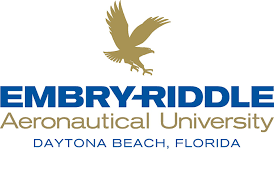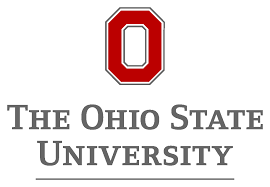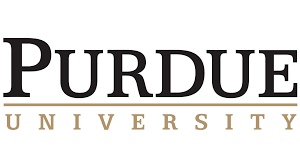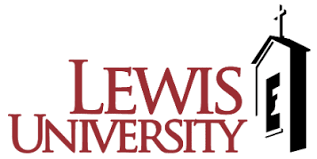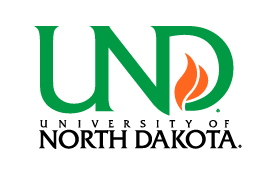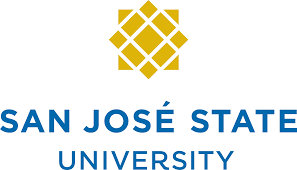Find Your Perfect School
Do you want to become a Commercial Airline Pilot? A Certified Flight Instructor? Or, a single-engine Airplane Pilot (just as a hobby)? There are many flight opportunities to acquire.
A Commercial Pilot oversees aircraft and flights focused on transporting cargo, business personnel, or even sight-seeing tours and the like. Unlike Airline Pilots, Commercial Airline Pilots only need a high school diploma and proper training from an FAA-accredited flight school to excel.
A CHILDHOOD DREAM… To become a Commercial Pilot!
Becoming a Commercial Airline Pilot is a dream come true for many little boys and girls. It’s not out of your reach if you can put in the hard work and complete your training. But, what will you need to do? How much money can you make? These and other important questions are answered below. Take a look! You’ll be flying high in no time!
QUICK SUMMARIZATION:
To become a Commercial Airline Pilot, you will need a high school diploma and proper training to gain certification. Commercial Airline Pilots typically transport for businesses in almost any type of industry. Primarily, they focus on moving cargo and/or personnel within a business. To become a commercial pilot, proper training must be established. Begin flight training today!
Click a School and FLY straight to it or leisurely scroll for a less turbulent flight!
- Embry-Riddle Aeronautical University
- The Ohio State University
- Purdue University
- Lewis University
- University of North Dakota
- Florida Institute of Technology
- Western Michigan University
- Utah Valley University
- San Jose State University
- Spartan College of Aeronautics and Technology
AIRLINE PILOT vs. COMMERCIAL PILOT
Of course, both types of pilots require proper licensing and training; however, an Airline Pilot typically will require a bachelor’s degree. Commercial Pilots must have a high school education or an associate degree. Airline Pilots usually work for airline passenger companies, while Commercial Airline Pilots work for privately owned businesses.
Methodology
The researchers and writers here at PremiumSchools.org use only the most reliable resources to gather the most up-to-date data for those interested in becoming a Commercial Airline Pilot.
The following are our criteria for this ranking for becoming an airline pilot:
- On-Campus Commercial Airline Pilot classes with flexible and convenient schedules,
- Top-quality Commercial Pilot coursework that features the latest industry theories, principles, and applications to promote the student’s professional competence in various capacities within the field of aircraft,
- Experienced and well-credentialed faculty, experts in the field of commercial pilots and the like,
- Excellent reputation among industry insiders, journalistic institutions, and higher education agencies,
- Offers proper accreditation and requirements for becoming a certified Commercial Pilot,
- An array of financial aid options for qualified Commercial Pilot students.
These school rankings include bachelor’s programs designed to meet the requirements needed to become an airline pilot or commercial pilot, along with associate programs. Choose according to your desired career level.
For more information, please visit our Methodology Page.
10 BEST SCHOOLS FOR A COMMERCIAL PILOT DEGREE
Embry-Riddle Aeronautical University
(On-campus) BS in Aeronautical Science
ERAU is a premier aviation university that offers an outstanding BS in Aeronautical Science program for future professional pilots. Students earn 120 credits over eight semesters to earn the degree and become holders of the coveted FAA commercial pilot license. The license itself comes with multiple engine and instrument ratings.
Students may also pursue advanced flight training as an option. The training includes certification as a flight instructor, upset training, and flight crew member training via jet aircraft simulator.
Mathematics, physics, and communications are among the courses during the first two years of matriculation. For the last two years, students have engaged in extensive flight courses and other aeronautics-related coursework. The combination of academic study and flight training establishes a strong foundation for aviation work, particularly as a commercial pilot.
Students use ERAU’s extensive fleet of airplanes for flight training, such as Diamond DA42s and Cessna 172s. ERAU’s Daytona campus is close to the Daytona Beach International Airport and other possible training venues.
The training facilities include advanced flight simulators and visual systems that complement in-flight training. The flight core courses build up the students’ confidence and, thus, make them workplace-ready within four years. Hands-on training also develops their leadership ability, decision-making aptitude, and critical thinking skills in pressure-filled situations.
Programs Offered:
- Air Traffic Management
- Aerospace Engineering
Enroll in ERAU’s BS in Aeronautical Science degree program and be among the best commercial airline pilots in the country! This is, hands down, the best school for starting your career.
The Ohio State University
(On-campus) BS in Aviation
Offered by OSU’s famous College of Engineering, the BS in Aviation program is among its most technical degrees with a rigorous engineering-centric curriculum. Students must enroll in multiple engineering courses and, thus, be proficient in advanced math subjects, including Calculus, to keep up with the grueling pace. The ultimate reward is worth every effort – you can become a commercial pilot, a regional airline pilot, or a flight instructor after graduation!
The extensive coursework covers general education courses, but these are regarded as the foundational coursework for the aviation-heavy curriculum. Students start with a strong engineering foundation, followed by major courses in Aviation and technical electives. Advanced Math, Chemistry, and Physics will challenge the students’ intellect while communication and composition courses, among others, develop their transferable skills.
Students who want to become commercial pilots should choose the Professional Pilot Specialization. The specialization satisfies the primary requirements for a commercial pilot certificate and instrument rating. However, students must first complete their instrument training as well as private and commercial pilot training. Afterward, students may or may not pursue certified flight instructor or multi-engine training.
Programs Offered:
- Architecture
- Biological Sciences
OSU, a Public Ivy, is among the world’s best public universities, so it’s also an excellent choice to acquire your training wings! Check out its BS in Aviation program and see why commercial airline pilots highly regard it.
Purdue University
(On-campus) Bachelor’s in Professional Flight
Offered at Purdue’s School of Aviation and Transportation Technology, the Bachelor’s in Professional Flight degree program provides students with new perspectives on the aviation industry. Students learn to fly a wide range of aircraft through the university’s state-of-the-art simulators and aircraft fleet. Instructors include experienced aviation professionals and certified flight instructors with a keen interest in their student’s success on and off the ground.
Students build up their technical skills – and confidence in applying their skills on the ground and in the air – through several core aviation courses. The Introduction to Aviation Technology course establishes the right foundation before students move forward with advanced courses that challenge their intelligence and perseverance. The advanced courses include Aerospace Vehicle Propulsion and Tracking Systems; Aerospace Vehicle Systems Design, Analysis and Operations; and Aviation Operations Management.
The series of Private Pilot Lectures and Private Pilot Flight courses test the student’s knowledge and their cool demeanor under pressure. Their critical thinking, communication, and problem-solving skills are tested, too, alongside their aviation-related skill sets.
Graduates earn their commercial pilot certificates along with an instrument rating. Since Purdue is an R-ATP flight school, students can earn the R-ATP certificate with 1,000 flight hours. Purdue also offers students the opportunity to earn their bachelor’s and master’s degrees in aviation in five years.
Programs Offered:
- Construction Management Technology
- Web Programming and Design
Purdue’s Bachelor’s in Professional Flight degree carries with it the university’s prestige and the program’s rigorous curriculum for commercial pilots. You cannot go wrong with it in your resume!
Lewis University
(On-campus) BS in Aviation Flight Technology
Students enrolled in the 128-credit-hour BS in Aviation Flight Technology program start their flight training in their first week of classes! While general education courses take up the bulk of the coursework, core aviation courses are already on the schedule. Students have a scheduled two-hour flight time thrice a week, a fast-paced program that builds technical skills and professional confidence.
Students with prior FAA-approved credentials, such as ratings or certificates, may also apply for academic credits for these credentials. For example, private pilot training can mean skipping the Private Pilot Ground Schools I & II courses and receiving eight credits.
Both students with and without flying experience prepare for a career in commercial aviation and graduate with FAA credentials including:
- Commercial Pilot Certificate – Airplane Single-engine & Multi-engine Land & with Instrument Airplane rating
- Flight Instructor Certificate – Airplane Single-Engine Land & with Instrument Airplane rating
Students may also pursue optional certificates and ratings for ground and flight instructors.
Lewis also allows its aviation students to fly as many times as possible during the summer term. The accelerated schedule means that students can accomplish an entire semester’s worth of flight hours in a few weeks.
Programs Offered:
- General Studio Art
- Organizational Leadership
Why lie low with a degree in aviation from another university when you can soar high with Lewis’ BS in Aviation Flight Technology degree? Check it out now and find that, indeed, it deserves its reputation as the best training ground for professional commercial airline pilots!
University of North Dakota
(On-campus) BS in Aeronautics Major in Commercial Aviation
Students can earn the BS in Aeronautics degree in 4-5 years, depending on their program of study and their enrollment status. Students must earn 120 credit hours with courses covering general education, major, and elective courses. This is a commercial aviation degree that leads to commercial pilot certification. Students also can get flight training for helicopter operations, a valuable credential in the aviation industry.
Trivia: UND’s students in all its flight training programs flew 126,000 hours, a national record and a testament to its Aviation Department’s commitment to excellence.
The learning outcomes include demonstrating:
- Proficiency in the safe operations of turbine aircraft for commercial flights
- Leadership ability in crew management, including in challenging, even hostile, environments
- Competency in the operations of single-engine and multi-engine standards as well as VFR and IFR flight standards
- Instructional knowledge in VFR and IFR flight and single-engine flight
- Knowledge of government and industry regulations as well as management of airlines and airports
Students have a competitive edge in the job market because of UND’s career pathway partnerships with several major airlines. Getting a headstart on interviews is among its perks. Many airlines also offer conditional offers of employment that allow students to explore their corporate culture and learn on the job.
Programs Offered:
- Nursing
- Business Administration
Earn your BS in Aeronautics Major in Commercial Aviation degree from UND and enjoy the ride of your life! Your commercial airline pilot certificate will be yours in a few years, and the experience will be memorable, too.
Additional Information: The 15 Best Online Accredited Trade Schools
Florida Institute of Technology
(On-campus) BS in Aeronautical Science – Flight
FIT’s BS in Aeronautical Science – Flight option leads to a professional pilot license. The program’s fast pace is that first-year students immediately take core aviation courses and fly within their first week! The core courses start with Aviation Meteorology and Aviation Physiology and then progress to advanced courses, including private pilot classes.
Senior students also take advanced courses in aviation security and aircraft systems. By their graduation, students have logged in between 250 and 300 flight hours, too. Students may also choose from several accelerated MBA programs that combine aviation and a business degree.
Despite FIT being a large university, students benefit from small classes that allow more personalized interactions between students and their instructors. The experienced instructors include pilots and aviation experts with demonstrated expertise in diverse fields, including aviation safety, instrument flight rules, laws, and avionics. Their impressive credentials are matched by their commitment to student success, including mentoring services.
Students learn their academics and earn their flying stripes in the Basic Aviation Training Device (BATD) Laboratory with desktop simulators and aircraft. FIT maintains a fleet of aircraft, including Pipers, Cessnas, and CADCAM, and a human factors laboratory.
With Florida being the Sunshine State, students have nearly year-round opportunities to practice their flying skills. FIT is in the state’s high-tech corridor and students also have plenty of internship and employment opportunities.
Programs Offered:
- Civil Engineering
- Finance
What better way to soar the skies and take on a successful aviation career than earning FIT’s BS in Aeronautical Science – Flight degree? This is truly a fitting way to earn your commercial airline pilot license!
Western Michigan University
(On-campus) Aviation Flight Science Major
WMU offers a 123-credit hours Aviation Flight Science Major degree program designed for students with zero flight experience. But it isn’t just designed for training aspiring commercial pilots but for producing the best captains! Students thrive in a conducive environment where employment readiness with professional-level technical and transferable skills is the main goal.
The core courses include Professional Flight Theory and Lab, a series of courses dealing with flight skills, Advanced Aircraft Systems, and Advanced Aerodynamics and Performance. Students also learn the fundamentals of line-oriented flight training, crew resource management, and airline regulations. Business practices are also emphasized through courses in economics, management, and profitability among airlines.
Students train using WMU’s state-of-the-art training devices, including simulators equipped with flight management systems and electronic flight instrumentation systems. WMU has a modern fleet of aircraft so that students can fly in single-engine and multi-engine aircraft.
With their comprehensive on-ground and flight training, graduates earn their FAA commercial pilot certificate with multi-engine land and instrument ratings. Graduates may also pursue aircraft-specific training with whatever airline hired them.
Candidates must apply before the fall semester and submit the required documentation on or before the stated deadline. WMU has a selective admission process that includes a holistic review of the application packet, including the academic transcripts, letters of recommendation, and personal essays.
Programs Offered:
- Religion
- Biochemistry
Get your aviation career off to an excellent start by enrolling in WMU’s Aviation Flight Science Major program! Becoming a commercial airline pilot isn’t just a dream but a reality with the degree.
Utah Valley University
(On-campus) BS in Professional Pilot
UVU’s BS in Professional Pilot program has an enviable reputation for being an excellent training ground for aspiring commercial pilots. Every student builds professional-level knowledge and skills for employment with airlines and other aircraft operators across the country.
FAA-approved flight training is an integral part of the program, resulting in graduates earning their commercial pilot certification upon program completion.
The program’s specific aviation training includes the FAA 14 CFR Part 141 and R-ATP components. Regional airlines are the popular choice for entry-level jobs among UVU graduates.
This is a 120-credit hours program with the following learning outcomes:
- Demonstrate professional competencies in commercial aircraft operations according to FAA standards
- Manage aviation-related systems, equipment, and crew in both normal operations and emergencies
- Pursue lifelong learning in aviation and a self-directed career path
- Produce reports and present the information contained therein in an effective and efficient manner
Candidates are admitted through a selective process with admission requirements including an overall 2.5 GPA, minimum, and a second-class FAA medical certificate. UVU uses a point-based application system.
Students must also be enrolled full-time for the flight training component. This is a time-intensive and rigorous period that requires full-time commitment and focus.
Programs Offered:
- Mechatronics Engineering Technology
- Digital Cinema Production
You can be the best commercial pilot you’ve dreamed of becoming by earning UVU’s BS in Professional Pilot degree!
San Jose State University
(On-campus) BS in Aviation – Professional Flight
SJSU’s BS in Aviation – Professional Flight concentration welcomes students with and without prior flying credentials. Every student gains a strong foundation in aviation-related technical topics that result in FAA ratings. Flight activities are the main source for FAA ratings, and these are conducted at flight schools near the university, particularly at the Reid Hillview Airport.
Graduates earn an FAA-approved commercial pilot rating, an instrument rating, and a private pilot certificate. Students may also request academic credits for FAA pilot ratings while in the program. Note that flight training costs aren’t included in the program’s tuition and, thus, students are responsible for their payment.
Students who want to earn the commercial pilot certificate must log in 250 flight hours and demonstrate a mastery of a range of piloting skills. The latter requires at least 20 hours of operating a non-complex aircraft, 10 hours in a complex aircraft, and 10 hours of cross-country flight.
The extensive academic and flight training equips students with the essential competencies required of commercial pilots for airlines and other aviation operators. These include the use of navigation instruments, flight techniques and technologies, and communication systems.
Programs Offered:
- Computer Electronics and Network Technology
- Manufacturing Systems
When you enroll in SJSU’s BS in Aviation – Professional Flight program, those flying stripes are within reach!
Spartan College of Aeronautics and Technology
(On-campus) AAS in Aviation Flight
Spartan’s 17-month AAS in Aviation Flight program is among the shortest programs for aspiring commercial pilots. However, its innovative flight training program is excellent preparation for students seeking FAA certifications and ratings. Students can earn milestones, including the commercial pilot certificate for single-engine and multi-engine aircraft and an instrument rating.
Spartan College uses its Flipped Classroom format, where students learn through traditional classroom formats, media training devices, and out-of-the-classroom mentoring. Students use an iPad equipped with a specially designed flight program where tests, tutorials, and lessons can be accessed. Every specific course has assessment tests to evaluate the level of proficiency.
Senior flight instructors lead the on-ground training, too. Then, students progress to the flight component, starting with training devices including Redbird and Frasca simulators. The simulation experiences are crucial for students to learn aircraft operations before their actual flight training.
Students learn actual flight operations through supervised flights in Spartan’s 40-strong fleet of airplanes, including Piper Seminole, Piper Archer, and Cessna 172. The scheduled flight training occurs 3-4 times a week.
Graduates are well-prepared to pass their FAA certification exams. Many also earn a BS in Technology Management degree or train as a certified flight instructor.
Programs Offered:
- Aviation Maintenance Technology
- Aviation Electronics Technology
Go for a Spartan College AAS in Aviation Flight degree, and it may well be the best 17 months of your journey as a commercial pilot!
FREQUENTLY ASKED QUESTIONS
What do Commercial Pilots do?
Commercial Pilots generally do not expect scheduled flights as an Airline Pilot does. They often fly when needed… and at the spur of the moment notice, sometimes.
Other duties include:
- Flying appropriate aircraft
- Useing cockpit instruments
- Checking aircraft before and after each flight
- Checking fuel levels
- Checking weather conditions and emergencies
- Maintaining records
- Checking weight limits before flights
- Working closely with air traffic controllers
- And, much more!
How do I become a Commercial Pilot?
A Commercial Airline Pilot is required to have a high school or equivalent diploma. In addition, they must obtain a commercial pilot’s license from the Federal Aviation Administration (FAA).
Flight training programs are a must from an FAA-certified flight school, often offered through an independent school or a 2-year or 4-year college.
Will I need on-the-job training to be a Commercial Pilot?
Yes, on-the-job training will include six to eight weeks of ground school by the Federal Aviation Regulations (FAR). You will learn as you accompany the Captain and assist with flying the aircraft and communicating with the control tower. Specialty training is also available (like for becoming an airline transport pilot), depending on the type of aircraft you are managing. Continued education is a must as well for a Commercial Pilot.
Will I need to have a Commercial Pilot’s license?
Yes, according to the BLS, a Commercial Pilot must obtain their license and ratings in the following order:
- Obtain Student Pilot Certificate,
- Private Pilot License,
- Instrument Rating,
- Commercial Pilot License,
- Multi-Engine Rating,
- And finally, the Airline Transport Pilot Certificate.
Also, airlines often conduct their testing to assess your problem-solving, analytical, and decision-making skills, as well as your psychological state. Flying hours may be required per each airline’s requirements.
Will I need a physical before beginning a program to become a Commercial Pilot?
Yes, a Commercial Pilot will need to have a physical per the regulations made by the FAA. To receive your medical certificate, you will need to be examined by an Aviation Medical Examiner (AME).
What is the salary of a Commercial Pilot?
Commercial Pilots were paid, on average, $211,790 per year, according to the BLS as of May 2022. The highest 10% earned upwards of $239,200 annually.
Is there a job demand for a Commercial Pilot?
This field states a positive job growth rate of 4% between 2022 and 2032, according to the BLS, as of May 2022. Student pilots can look forward to around 16,800 job positions over the next ten years.
Where do Commercial Pilots find work?
Commercial Pilots work for many different types of companies, such as:
- Commercial Airlines
- Ambulance & Hospital Services
- Private Businesses
- Federal Government
- Charter Companies
- Delivery Companies
- Rescue Operations
- Aerial Photography
- Sight-Seeing Tours
- And, many more!
What type of aircraft can you fly as a Commercial Pilot?
With a commercial license, you can fly an airplane or helicopter; however, with every new aircraft you plan to fly, proper training will be required first.
A private (instead of a commercial) helicopter pilot’s license is all you need… if you are flying a privately owned helicopter and you are not seeking pay.
What can you expect to learn in a Commercial Pilot program?
The Federal Aviation Administration requires many standard courses; however, schools differ in curricula. However, here are a few examples:
- Instrument flight rules
- Powered Aircraft
- Air traffic control
- Flight planning
- Navigational instruments
- Flight computers
- GPS systems
- Meet the required hours of flight time
- And, much more!
What can disqualify one from being a Commercial Pilot?
A medical condition or history of medical conditions that could interfere with your ability to safely operate a commercial aircraft could disqualify you from being a commercial pilot. Disorders such as a personality disorder, epilepsy, or diabetes requiring medication can disqualify you from earning your pilot’s license.
In addition, angina pectoris or myocardial infarction, as well as other disorders may render you unconscious, which would disqualify you from becoming a Commercial Pilot. Other possible disqualifying factors may include a criminal record, a history of alcohol or drug abuse, or a lack of educational qualifications.
KEY POINTS TO PONDER
- To become an airline pilot, your first decision should be what type of airline pilot you would like to be.
- There are specific requirements needed to become an airline pilot, commercial airline pilot, private pilot, or perhaps a certified flight instructor, airline transport pilot, and more, depending on your career choice.
- Regional and major airlines may also have specific requirements for their commercial pilots, so be sure to check that out!
- Various licensure/certification choices include an airline transport pilot license, private pilot certificate, flight instructor certificate, commercial pilot license, and more.
- The Federal Aviation Administration is the gold standard for providing quality airline safety and experience as it enforces regulations for manufacturing, maintaining, and operating aircraft.
- To become an airline pilot for a commercial airline, most major airlines will require the successful completion of a bachelor’s degree in aviation.
- Flight school training will require a specified number of flight hours to become a commercial pilot.
- Do you need a flight instructor certificate, private pilot certificate, or student pilot certificate to complete your training? Get started today and get the airline pilot job you deserve!
- Are you ready to see other states and other countries? Most pilots love their jobs and get to see the world! Become an airline pilot today… in whichever capacity you choose!
Becoming an Airline Pilot or a Commercial Pilot is not your thing? Take a look at this: The Highest Paying Jobs With A Trade School Education
Related Article: The Best Schools For Becoming an Aerospace Engineer and Operations Technologist: Degree and Job Info
